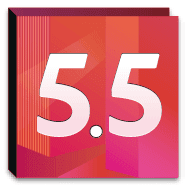My first few semesters on the tenure track had me often confused -- I was once the girl who met every deadline early, never forgot an appointment, and flew through course preparation with an exciting energy that made work fun. Then, slowly, I saw my workload shifting. I found myself pulled in a lot of directions and much of the work being incorporated into hours outside of the office. Had I lost my touch? The uber-organized pride themselves on deadlines and charts -- yet I could not make my time lines and to-do lists match up with my actual output.
I was exploring this the other day after talking with a few new (bright-eyed and bushy-tailed) junior faculty members. In the light of their radiant new energy, I felt rather dingy and lackluster as I worked to avoid dulling their shiny energy with my weariness. How could it be that each semester got more challenging?
My scapegoat: SERVICE.
Yes, Service gets all of the blame this time around!
Service requirements can eat tons of time throughout a week. This semester, I'm on several committees and on two searches. Last week I was in meetings for HOURS each day! Then, you add an overload of classes to teach, office hours (where I am very blessed that my students DO come by so that time is dedicated to them first), and the struggle to squeeze in time to research and write grants. At the end of the day, it seems the interminable meetings might be the giant ogre in the path on our journey toward tenure.
To keep service components in place and polish up my brightness level so I can be eager, shiny, and beaming in my energy again, I decided to more carefully monitor my service hours per day.
- If I am already attending a meeting on an especially convoluted teaching/office hours day then I am declining (or noting my lack of availability) for any meeting requests for that day, regardless of their times. I am going to instill a one meeting maximum on heavy teaching days!
- I will prioritize committees where I bear a burden for work (like our QEP or a search committee) while de-prioritizing meetings where we don't produce a required document or event (like CETL)
- I am not open to any new committees, so my apologies to all but this girl must draw the line and a few university and department committees should be it, even at a small institution where the smaller number of faculty usually means higher service loads.
- I will spread the wealth! I think my committees have given me a lot of benefits (see previous blog entries, "Service: Who participates?" - March 2010 and "Service, stress, and pre-tenure paranoia" - April 2011 ) and other (newer) faculty should have the chance to experience such benefits. I will decline while recommending someone who may be especially poignant for a certain committee.
- I will try to let go of my controlling ways and encourage others to steer the boat.
- I will remember the words from my March 7, 2012 post "Muscle through Midterms" where I reminded myself of the joys of service, where I noted "even the (often laborious, somewhat thankless) Service is on my "pro" list of university life. Knowing that your voice has a place in shaping the university through committee contributions can be incredibly rewarding."
- I will continue to learn, grow, and explore within the academy by pursuing my goals with clear communication highlighting why I am or am not able to work with certain committees. I will foster and retain solid relationships so everyone can see the benefit of a well-run committee without being placed on too many to be effective. Let's hear it for strategic workplace communication!
You can "like" Communication and Higher Education Blog
on Facebook: http://www.facebook.com/CommHigherEdBlog



